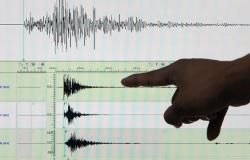In the midst of a challenging economic panorama, with fluctuations and figures that reflect the complexity of the national context, the San Juan economist Luis Aveta sheds light on the advances and obstacles that characterize the Argentine economy today. With a critical and reflective approach, Aveta breaks down recent data, from the zero deficit to the drop in revenue and the impact on productive activity, offering a comprehensive vision of the factors that shape the country’s economic present and future.
“The zero deficit has a margin of relativity because we must also take into account that it is a zero primary financial deficit. That means that it has not had to issue to pay the bills, but it has not paid all the bills that it had to pay. For For example, there is a huge account with CAMESA (Argentine company in charge of operating the wholesale electricity market in the country), and in turn, there is a debt of this company with different provinces, for example, with San Juan. These debts are enormous and it is not known when they will be collected. This happens because CAMESA is not charging some provinces for distribution and is not paying for production either,” highlights the economist.
Furthermore, Luis Aveta points out that exports have increased, “that this year they were favorable on the gas issue, and last year it was the other way around due to the issue that the gas pipeline was not finished. There are numbers that have helped from one year to the next to achieve this situation of zero deficit and to achieve also trade surplus. The good thing is that the government does not need to issue debt, bills or bonds to pay what it owes, because it is enough with what it collects, which means zero deficit,” Explain.
And in this sense, it stands out that the numbers that Milei presented are “a little weak, because there was a sharp drop in collection. If we make an interannual comparison, we see that there have been many adjustments in consumption, the main tax in Argentina after inflation is the value added tax which is directly related to consumption, and consumption has fallen sharply;taxes related to consumption have also fallen“.
Poverty in Argentina
“ANDThe president himself is accepting that there are 60% poor. The average salary in Argentina is about $300. The entire economy is dollarized, but the only thing that is not dollarized is the salary. A salary of $300 is one of the lowest in Latin America and will continue to become increasingly impoverished. Until everything finishes adjusting with the fall in inflation that the president and everyone wants to reach a value close to 0.1% monthly. Furthermore, even though inflation in December reaches 1%, it will be 130% annually. If one starts with rates from January of next year, the situation can be regulated there; “First we have to get inflation down to absolutely controllable levels so that production is profitable.”
In this sense, the specialist points out that with the current situation, even though fixed-term rates continue to be lowered, financial money continues to be more productive than productive money because credit continues to be very high in Argentina. “An entrepreneur today cannot go out and take out a loan to expand his company or produce more because the banks charge a rate close to 200%.“.
In this sense, he highlighted that an industry has to have a very high level of profitability to pay a bank rate, which is why he pointed out that “We still do not have the values that we must have to grow, and we are going to continue seeing how economic activity falls, at least until july“.
Slow recovery
The specialist points out that when a positive measure is taken in economic matters, the effects only begin to be seen after 6 months. “If we hit a bottom in July, we will be seeing the results of the economic measures in February,” he highlights.
2024, a tough year for society
“This year 2024 is going to be very hard for society in general. The International Monetary Fund says that Argentina is going to end up falling 2.8% this year and for me it is excellent news if it comes true. And this has to do because despite being a fall at this moment we are falling below three and a half percent in GDP. So if the Monetary Fund says that we are going to fall by 2.8 it is because a recovery of at least 0 awaits us. .7% between now and the end of the year”, Aveta explains
In this context, he highlighted that a 0.7% recovery in economic activity “is not like a V, but like a soft U,” in reference to the graphs with which economic activity is measured. Therefore, Argentines and San Juan residents in particular will have to continue holding on, at least until July and then begin a slow recovery.





